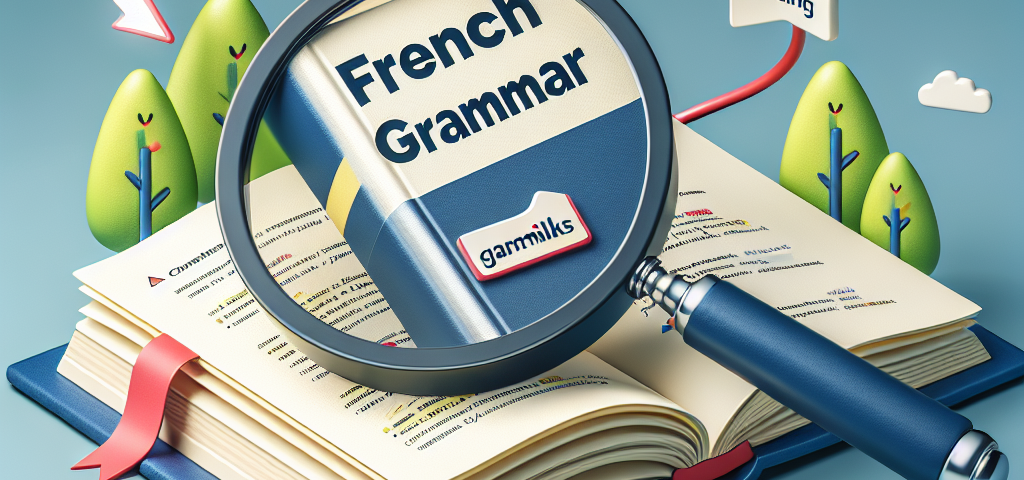
Conquering French: The Best Online Resources for Every Learner
May 30, 2025
From Nouns to Verbs: A Beginner’s Journey Through French Grammar
May 30, 2025
Learning French can be an exciting adventure, but it’s also a journey riddled with grammatical challenges. From gendered nouns to verb conjugations, the subtleties of French grammar can trip up even the most dedicated students. This article aims to simplify some of the common pitfalls, making your path to fluency smoother and more enjoyable.
Understanding Gendered Nouns
One of the first hurdles in mastering French is the concept of gendered nouns. In French, nouns are categorized as either masculine or feminine, which can seem arbitrary at first. Here are a few tips to remember:
- Common Endings: Familiarize yourself with common endings. Nouns ending in -age, -ment, or -oir are typically masculine, whereas those ending in -tion, -té, or -ette tend to be feminine.
- Memorization: Unfortunately, many nouns don’t follow the rules. Memorizing the gender along with the noun when you first learn it helps reduce confusion later on. For instance, learn "la table" (the table) and "le livre" (the book) together.
Articles and Pronouns
French articles (definite and indefinite) and pronouns can be particularly tricky. Here are some essentials:
-
Definite Articles: The definite articles "le," "la," and "les" correspond to “the” in English. Remember that "le" is used for masculine singular nouns, "la" for feminine singular, and "les" for plural nouns.
-
Indefinite Articles: "Un" and "une" correspond to “a” or “an” in English. "Un" is for masculine and "une" is for feminine nouns.
- Pronouns: Subject pronouns (je, tu, il/elle/on, nous, vous, ils/elles) can also be confusing. Make sure you practice conjugating verbs with different subjects to reinforce the connections between pronouns and their corresponding verbs.
Conjugating Verbs
French verbs are notorious for their complex conjugation patterns. To simplify, break it down into three groups:
-
Regular Verbs: These follow standard patterns. For instance, -er verbs like "parler" (to speak) or -ir verbs like "finir" (to finish) have predictable endings.
-
Irregular Verbs: These need to be memorized since they don’t follow the standard patterns. Some of the most common ones include "être" (to be), "avoir" (to have), and "aller" (to go).
- Future and Conditional Tenses: The formation of future and conditional tenses can also pose challenges. Familiarize yourself with the structure:
- Future: Use the infinitive form and add the future endings (-ai, -as, -a, -ons, -ez, -ont).
- Conditional: For the conditional tense, use the infinitive followed by the endings of the imperfect tense.
Adjective Agreement
In French, adjectives must agree in gender and number with the nouns they modify. This can often create confusion, especially when the adjective is placed after the noun.
-
Position Matters: Most adjectives come after the noun, but some common ones like "beau" (beautiful) and "grand" (big) precede the noun. Always double-check their placement.
- Agreement Rules: If you’re describing multiple feminine nouns, your adjectives should reflect that. For example, "Les filles intelligentes" (the intelligent girls) follows the rule of adding an -e for feminine plural nouns.
Common Mistakes to Avoid
-
False Friends: Be cautious of words that look similar in both languages but have different meanings. For example, "librairie" means bookstore, not library!
-
Use of the subjunctive: The subjunctive mood is often overlooked but is essential in expressing doubt, desire, and necessity. Familiarize yourself with the triggers for its use.
- Overusing English Syntax: Translating directly from English can lead to awkward phrasing and incorrect grammar. Practice thinking in French to improve sentence structure and fluency.
Final Thoughts
Navigating French grammar doesn’t have to be overwhelming. By understanding the fundamentals and recognizing common pitfalls, you can build a solid foundation for your language skills. Remember, practice is key. Engage with native speakers, watch French films, or read French literature to enhance your proficiency. With patience and perseverance, you’ll move from grappling with grammar to mastering it—enjoying the beauty of the French language along the way!

